Will Smashing Your Makeup Set You Free? These Korean Women Hope It Will — and More
Some South Korean women are losing their lipsticks and lopping off their locks in the hopes of not just some personal freedom but of eliciting a fundamental shift in the way Korean society views beauty standards, the gender gap, and women in general. Is this the start of a revolution? Contributor Megan Bursey talks to three women in the Escape the Corset movement.
In the so-called plastic surgery capital of the world, appearance seems to be everything. It is estimated that up to one out of five women in South Korea have had some form of work done. But recently, a bold new movement has formed in reaction to these impossible standards, and it’s causing a major stir.
The movement, known as Escape the Corset, has gained international attention, with everyone from The New York Times and The Cut to CNN and the BBC covering the campaign. Escape the Corset may conjure up images of bra-burning feminists of the ’60s who, in response to the Miss America pageant, formed a protest and tossed their makeup, high heels, and girlie magazines into the “Freedom Trash Can.” But South Korea, though late to the party, is taking a 21st century approach to the movement. Scores of young women are turning to social media, using the hashtag #탈코르셋 (tal-corset) in an attempt to reject mainstream ideas of beauty. And though it may sound radical, Escape the Corset is simply about what you won’t do: put on a full face of makeup with perfectly styled hair and a flawless outfit every single day. Women are disposing of their expensive beauty products, cutting off their long locks, and choosing to celebrate their natural beauty instead.
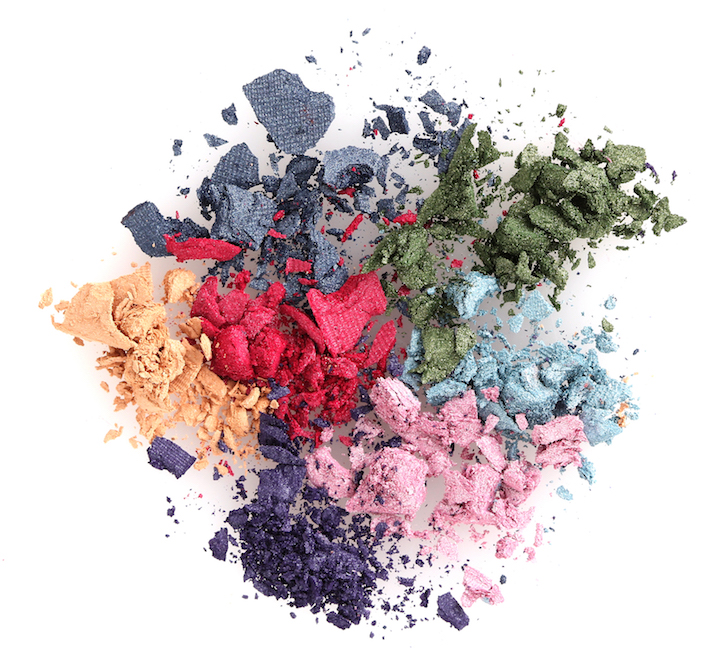
Cha Jiwon is one of those women. The 23-year-old office worker been interviewed by the international media and has said that since she cut her hair and tossed her makeup, she feels like she’s been “born again.” Jiwon told The Guardian: “There’s only so much mental energy a person has each day, and I used to spend so much of it worrying about being ‘pretty.’” Jiwon used to spend up to $90 a month on makeup, but that is now a thing of the past.
Jiwon shares her daily life as a feminist and participant in the movement on her YouTube channel and Instagram page under the moniker Korean Womyn, aka 한국여자. Her 31,000 subscribers watch videos of her pared-down skincare regimen and her minimalist approach to beauty. Her arsenal of products is perhaps as simple as it gets: lotion, sunblock, and lip balm.
I spoke to Jiwon, and she explained that she came to participate in this new feminist movement when she became aware of how anti-women Korean society was. “I hated to see repression towards women,” she says, “and once I realized this unfairness, I could not go back to where I was.”
View this post on Instagram
The rise of Escape the Corset in light of the global #MeToo movement, which sheds light on women’s experiences of sexual assault and harassment, may not be pure coincidence. In Korea, women have been protesting against the culture of patriarchy, sexual violence, and the prevalence of “spy cam” crimes where men leave hidden cameras in restrooms and other public places. A deeply patriarchal society, South Korea is ranked 115 out of 149 countries in gender disparity in economics, education, health, and political power. Korea also has the highest gender pay disparity among OCED countries; President Moon Jae-in has reportedly described called it a “shameful reality.”
On the beauty standards that she’d like to see in Korea, Jiwon says that “Korean society needs to stop looking at women based only on their appearance. If you stop sexually objectifying women, people will stop judging their worth based on their appearance.”
Big business
In all fairness, appearance is big business in South Korea. The beauty market is worth over $13 billion, placing the country among the top 10 beauty markets in the world. Just over half (51%) of the total market share comes from facial skincare, a category that is steadily growing. According to Mintel, more than two thirds (68%) of total skincare product launches in South Korea from 2015 to 2016 were for facial products. Color cosmetics make up the second largest beauty category, with South Korean women spending more than double the global average on color cosmetics.
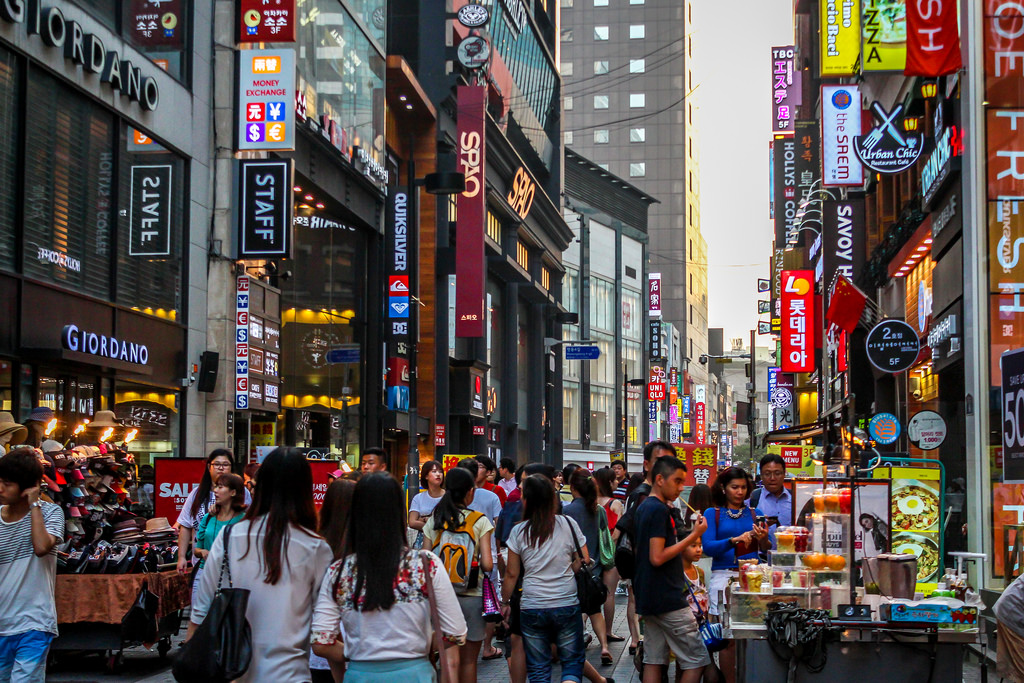
To compound matters, South Korean celebrities or “idols,” who are held up as the standard of beauty, often get extensive cosmetic surgery. The K-pop girl band SixBomb all underwent plastic surgery and used it as the concept for their new single a couple years back. The dramatic project cost $90,000, and the artists had “almost every kind of surgery that could be done on a face” as well as breast implants, according to their manager. Their music videos follow the group visiting a plastic surgery clinic, having their facial features examined, and dancing with their heads wrapped in bandages. In their song “Becoming Pretty,” they sing, “Everyone follows me; they know I’m pretty.”
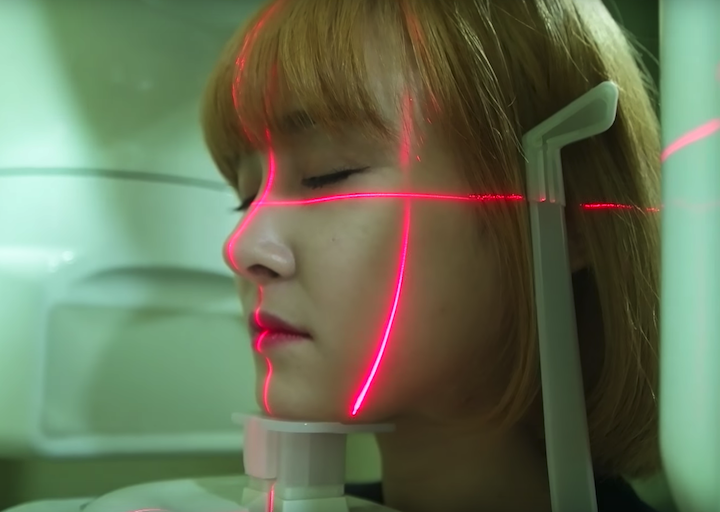
It’s the unrealistic goals of aesthetic perfection that the Escape the Corset movement seeks to abolish. One popular Korean YouTuber known as Bambigirl (밤비걸) recently announced that she would no longer be filming makeup tutorials, beauty unboxings, and skincare routines. Shim Jung-hyun, who is Bambigirl and boasts nearly half a million subscribers, explained that she is “no longer happy with making myself up beyond the point of gaining self-satisfaction.”
More than makeup
For Korean university student Chowon, the movement is more than just about makeup; it’s a “fundamental resistance against patriarchy,” she says. To that end, Chowon cut her own hair and discarded all of her makeup products. “I haven’t bought any makeup in two years,” she tells me. She’s also gotten rid of any “uncomfortable clothing, especially anything that would expose my body as a sexual object.”
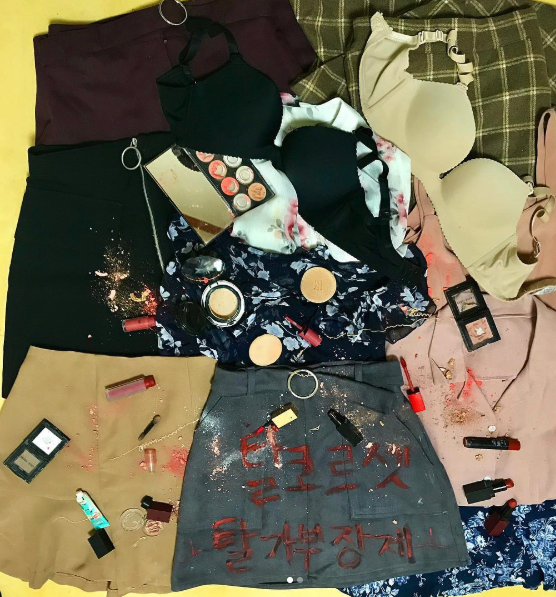
It’s given Chowon a sense of freedom, she says, and her family is supportive. “At the very beginning of my change, with my short hair and bare face, a couple of my family [members] thought I looked a little weird, but they weren’t judgmental." After two weeks, they were the ones telling her that it was time for a haircut.
The feedback Chowon has received from female friends has also been overwhelmingly positive. “Many of them told me that my hair looks so comfortable and cool,” she says. “Some even said I look more handsome than their boyfriend,” though she’s quick to add that “I know a compliment is also a form of judgment, but it brought a lot of laughter during many chats between female friends.”
For many Korean feminists, the Escape the Corset movement is about more than just makeup, hair, and dress. “The underlying structure of being trained to self-objectify is patriarchy,” says Chowon. “Women are encouraged to smile, always be friendly, and speak nicely, even if they are sexually harassed. The beauty of women in our society is not about healthiness or love.” She says that there needs to be an entire shift in people’s mindsets about what beauty means.
https://www.instagram.com/p/BszR8LRAMTV/
Amy, a 27-year-old teacher in South Korea, agrees. “I am so glad that even in a beauty-obsessed country like Korea, women are becoming more aware and are questioning exactly why they wear makeup.” She says they need to question why their lives are based on this performance of sorts, where they’re trying to conform to some “unrealistic and physically uncomfortable beauty standard” on a daily basis “just to look pretty.”
Amy, like Chowon and Jiwon, has stopped wearing makeup and only wears it in situations where she would be judged as looking tired or not putting in the effort by certain men who hold power over her job security or livelihood. “I never wear makeup to impress men I want to date, nor do I wear it in any other social setting. I prefer to be barefaced and natural because I feel like I’m hiding if I’m wearing makeup.”
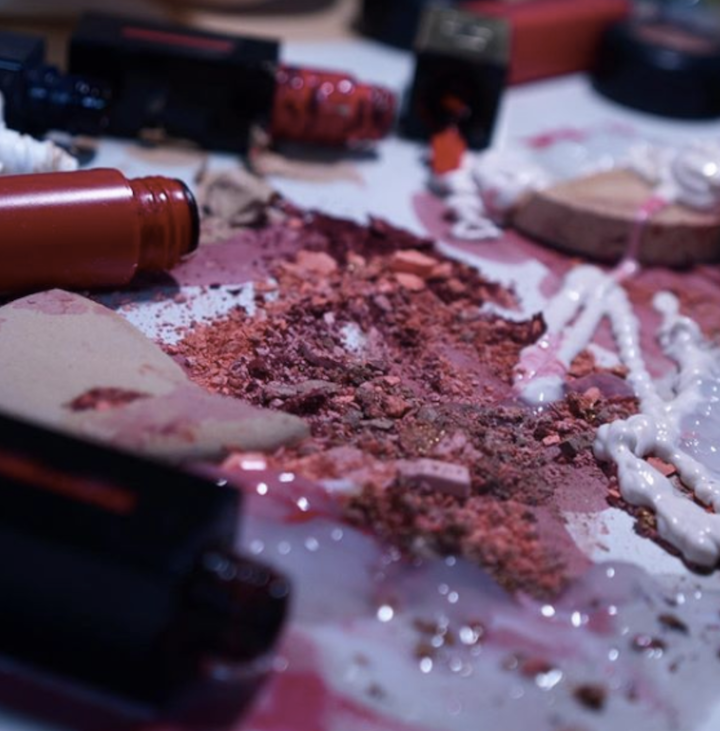
Amy has noticed that since she’s gotten rid of her makeup, she’s impacting the women around her. “Some women have asked me if I’m not wearing any makeup, and they note that I am confident in a very positive manner,” she says. “It’s like they also want to stop wearing makeup, but whatever reason is stopping them.”
Starting young
According to Amy, Korea’s beauty culture is “extremely advanced and prominent, where Koreans are obsessed with looking ‘perfect.’” And because of the accessibility and visibility of plastic surgery in the country, “everyone looks the same,” she says. “Gangnam Unni is a perfect example,” referring to the prevalence of women who have had a lot of plastic surgery, typically to create larger eyes, aegyo-sal, a V-line jawline , and a small, defined nose. (Because Gangnam is renown for its plastic surgery clinics, there is a saying that when you walk down the street in that neighborhood, you could swear you saw the same person walking past you 10 times.)
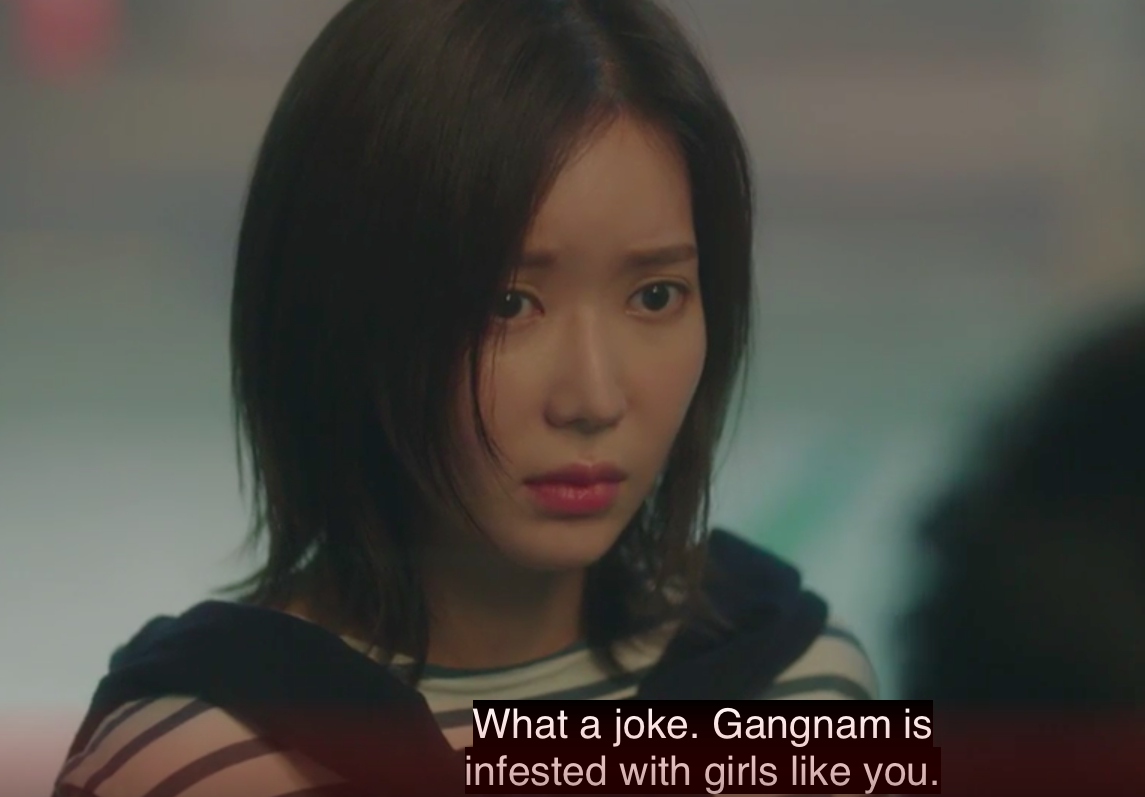
Even worse, this mentality is affecting younger and younger girls. “I think it’s extremely sad that incredibly young girls are even jumping on this bandwagon so early,” says Amy. “These girls are realizing society’s beauty standards much earlier, which I think is very toxic. It’s like they are only existing for others, and they will go through thousands of dollars of makeup, hundreds of hours of makeup application, and even physical surgery to achieve this [standard].”
In fact, one survey found that 73.8% of middle school students have worn color cosmetics, along with 76.1% of their high school counterparts. Beauty companies are targeting much younger children, too, with makeup products (as opposed to skincare) specifically designed for kids.
In a study by ChildFund Korea, it was found that female students between 10 and 12 years old owned on average two to three cosmetic products, from lip stains and blush to even BB cream and mascara. In 2016, it was estimated that the cosmetics market for teens and young adults was worth $267 million.
In 2017, the Ministry of Food and Drug Safety in Korea announced that it would set guidelines for children’s cosmetics, where they would add a new category “for use by kids aged 13 or below” to the existing categories, due in part because the age group using makeup products was getting “younger and younger.”
The future of beauty
When asked what kind of beauty culture they’d like to see in Korea, Amy and Chowon agree that it would be one where “more women empowered other women,” and where existing as your natural self wasn’t seen as “disgusting or gross.”
“Body hair is natural, cellulite is natural, menstruation isn’t disgusting. I wish women would learn to be OK in their natural bodies and not feel like they need to impress men to get by in life,” says Amy. “There are so many other things to do, like learn, travel, read, and discover.”
Chowon hopes that Koreans can learn to value each other and treat beauty with respect and responsibility. “I know it’s hard to achieve, but it must be possible.”
Loading...